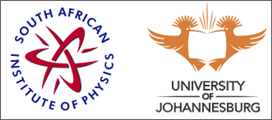Speaker
Level for award<br> (Hons, MSc, <br> PhD)?
MSc
Apply to be<br> considered for a student <br> award (Yes / No)?
Yes
Main supervisor (name and email)<br>and his / her institution
Miriam Lemmer
Miriam.Lemmer@nwu.ac.za
Would you like to <br> submit a short paper <br> for the Conference <br> Proceedings (Yes / No)?
Yes
Abstract content <br> (Max 300 words)<br><a href="http://events.saip.org.za/getFile.py/access?resId=0&materialId=0&confId=34" target="_blank">Formatting &<br>Special chars</a>
Learners’ difficulty in the application of basic concepts in graphs to solve kinematics graphs problems leads to underperformance in physical sciences. Their ability to handle problems in kinematics graphs is enhanced if they have an effective conceptual resources on graphs.
In South Africa there seems to be a gap between the GET [General Education and Training] and FET [Further Education and Training] band’s requirements on graphs. A smooth learning progression is needed. For this reason this study selected to investigate the conceptual resources acquired by grade 10 learners from grade 9 that can be used productively for the learning of kinematics graphs in grade 10.
The use of mixed method approach was considered appropriate for this study. The mixed method depended on the quantitative method to produce precise and measurable data, while a qualitative method was to enhance the understanding of the data produced by the quantitative method. Patterns and trends in learners’ reasoning were probed with the aid of qualitative method. In the study it was reported that the quantitative data in the form of a questionnaire was completed by 201 learners. Qualitative data was obtained by interviewing three learners with varying abilities.
The results showed that many learners could answer mathematics questions, but struggled with similar questions in kinematics. The results further showed that learners did not answer the questionnaire consistently, but their responses depended on the context of the questions. In the interviews learners used everyday applications to explain scientific concepts, instead of using scientific principles.
From the results it can be deduced that learners’ conceptual resources can influence their understanding of kinematics graphs in physics. These resources are gained from everyday experiences and previous learning in mathematics and the natural sciences. A constraint is that many learners do not efficiently integrate their mathematics and physics knowledge.

